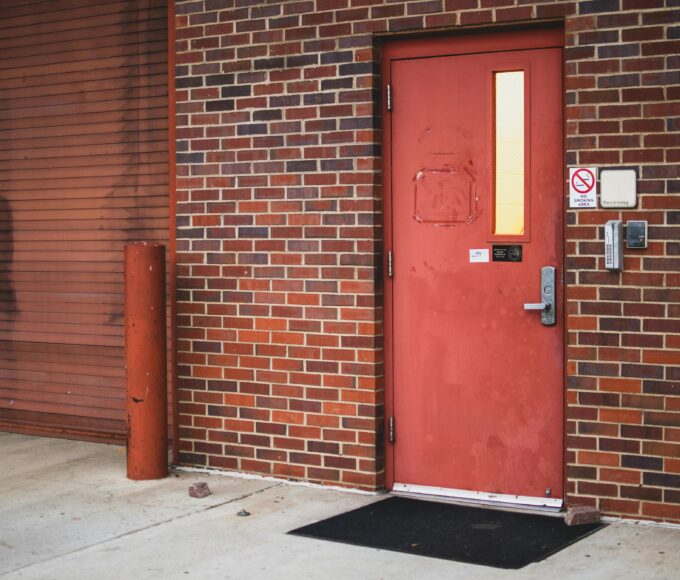Having the appropriate tank can make all the difference when it comes to handling diesel fuel for your vehicles or equipment. But how can you make a decision when there are so many possibilities available? Choosing the right diesel tank is essential for efficiency and safety, whether you’re a farmer maintaining equipment on your property or a contractor storing fuel at a project site. You will discover all the information you require to choose the ideal match for your requirements in this guide. We can help you with everything from knowing what a diesel tank accomplishes to investigating the many kinds and materials that are out there! Together, let’s get started and streamline this crucial decision-making procedure.

Knowing Why a Diesel Tank Is Needed
An essential part in fuelling many types of machinery and automobiles is a diesel tank. It securely stores diesel fuel so that you always have a supply on hand. These tanks are made to shield fuel from impurities and other elements that can lower its quality. This is particularly crucial for sectors of the economy where efficient, premium fuel is essential to operations.
Additionally, managing operational efficiency is aided by having a sufficient storage solution. You can reduce downtime by keeping your equipment operational at all times with the correct tank. Furthermore, adherence to fuel storage laws is essential. A carefully selected diesel tank safeguards your investment in equipment and operations while guaranteeing compliance with safety regulations.
Things to Take Into Account While Selecting a Diesel Tank
There are various considerations to address while choosing a diesel tank. Think about the intended use first. Are you refuelling a fleet of cars or large machinery? Your decision will be guided by the goal. Next, consider the setting. Specifications for indoor storage may differ from those for outside installations. Environmental restrictions may also affect the location and method of tank installation.
Safety elements are also very important. To reduce risks, look for tanks with appropriate venting and spill containment systems. Remember to consider accessibility for maintenance and refuelling requirements. Over time, a strategically positioned tank saves time and labour. Budgetary considerations are also important. Size, material, and extra features all have a significant impact on cost. Making a smart investment requires striking a balance between quality and cost.
Diesel Tank Types: Above-Ground vs. Below-Ground
The decision between above-ground and underground choices is critical when it comes to diesel tanks. Above-ground tanks are conveniently accessible for upkeep and observation. They are a well-liked option for numerous enterprises because they allow for flexibility in installation sites. Conversely, subterranean storage tanks offer covert storage options. They lessen the visual impact on your property and the amount of exposure to the environment. This can be especially significant in residential areas or other settings where aesthetics are valued.
However, in terms of safety requirements, each type has advantages and disadvantages. Protective barriers are frequently needed around above-ground tanks to stop leaks or spills from causing damage. Thorough inspections are necessary to make sure underground tanks aren’t poisoning groundwater. The appropriate sort of tank for your situation will depend largely on your location, usage requirements, and local restrictions. Having a clear understanding of these variables will help you make an informed choice that meets your needs.
Dimensions and Volume of a Fuel Tank
It’s important to select the proper size and capacity for your diesel tank. It affects your operational efficiency and determines how frequently you need to refill. Consider your consumption habits. Do you regularly fuel large machinery or perhaps infrequently? Although a larger tank may save you time when refilling, it costs more up front and takes up more room.
Take into account regional laws as well. Maximum capacities are restricted in several regions, particularly for above-ground tanks. Complying with these regulations can help you stay out of trouble and prevent fines. Another factor is the space that you have available. A compact solution can be the ideal choice if space is at a premium without compromising functionality. Your decision-making process should take future demands into consideration. Will you need more fuel as time goes on? Future expensive renovations can be avoided by planning for adjustments.

Choices of Materials for Diesel Tanks
There are a number of options available when choosing the material for your fuel tank, and each has pros and cons. The materials that are most frequently utilised include plastic, fibreglass, and steel. Steel tanks are robust and long-lasting. They are resilient to weather-related damage and can tolerate outside pressure. If not well cared for or coated, they could be vulnerable to rusting, though. Because it is lightweight and corrosion-resistant, fibreglass is a popular option. Because it does not rust like steel does, it is perfect for environments with a lot of moisture. Still, compared to other materials, fibreglass can be more expensive initially.
Plastic tanks offer a cost-effective substitute and exhibit resistance against chemicals and corrosion. Although they are lightweight as well, they might not be as impact-resistant as metal alternatives. In the end, the best material to use will rely on your unique requirements, including your installation environment, maintenance capabilities, and financial limits. Every choice has distinct qualities that meet the needs of various applications in the diesel storage market.
















